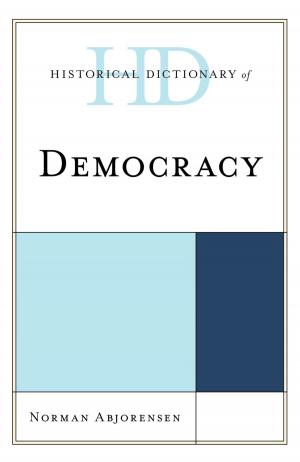What Would Jesus Really Do?
The Power & Limits of Jesus' Moral Teachings
Nonfiction, Religion & Spirituality, Theology, Christianity, Christian Life| Author: | Andrew Fiala | ISBN: | 9781461663447 |
| Publisher: | Rowman & Littlefield Publishers | Publication: | March 20, 2007 |
| Imprint: | Rowman & Littlefield Publishers | Language: | English |
| Author: | Andrew Fiala |
| ISBN: | 9781461663447 |
| Publisher: | Rowman & Littlefield Publishers |
| Publication: | March 20, 2007 |
| Imprint: | Rowman & Littlefield Publishers |
| Language: | English |
For many years many Christians have exhibited bumper stickers and wrist bands challenging themselves to live up to WWJD—What Would Jesus Do? Now Andrew Fiala, a professor who has encountered many such students in his classes, objectively assesses just what it actually is that Jesus does (and doesn't) say about the essential moral issues that face us today.
Andrew Fiala appreciates Jesus as a moral teacher with an ethical vision centered in love, generosity, forgiveness, tolerance, and peace. But he argues that it is often difficult to determine exactly what Jesus would say or do about tough contemporary issues, such as abortion, euthanasia, the death penalty, war, homosexuality, and politics. Hence, Fiala believes we need to engage in philosophical reflection and critical thinking to arrive at answers to today's ethical questions that Jesus never anticipated, such as those involving technology, scientific discoveries, ethical advances.
The book shows how philosophers and psychologists—from Kant and Mill to Nietzsche and Freud—struggled to make sense of the ethics of Jesus. The book concludes by arguing that we cannot pretend that Jesus and the Bible provide all the answers to our ethical dilemmas, although Jesus does provide perennial moral wisdom. Thus, Fiala shows that Jesus' moral teachings must be filled out with contemporary ethical reflection to determine what Jesus, as a moral ideal, would really do today.
For many years many Christians have exhibited bumper stickers and wrist bands challenging themselves to live up to WWJD—What Would Jesus Do? Now Andrew Fiala, a professor who has encountered many such students in his classes, objectively assesses just what it actually is that Jesus does (and doesn't) say about the essential moral issues that face us today.
Andrew Fiala appreciates Jesus as a moral teacher with an ethical vision centered in love, generosity, forgiveness, tolerance, and peace. But he argues that it is often difficult to determine exactly what Jesus would say or do about tough contemporary issues, such as abortion, euthanasia, the death penalty, war, homosexuality, and politics. Hence, Fiala believes we need to engage in philosophical reflection and critical thinking to arrive at answers to today's ethical questions that Jesus never anticipated, such as those involving technology, scientific discoveries, ethical advances.
The book shows how philosophers and psychologists—from Kant and Mill to Nietzsche and Freud—struggled to make sense of the ethics of Jesus. The book concludes by arguing that we cannot pretend that Jesus and the Bible provide all the answers to our ethical dilemmas, although Jesus does provide perennial moral wisdom. Thus, Fiala shows that Jesus' moral teachings must be filled out with contemporary ethical reflection to determine what Jesus, as a moral ideal, would really do today.















